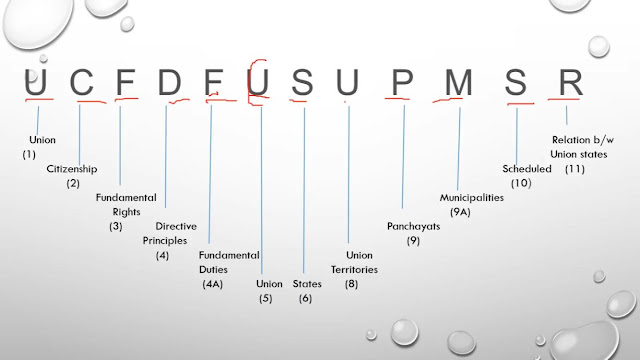JUDICIAL REVIEW AND JUDICIAL ACTIVISM
Judicial Review and Judicial Activism
Judicial Review refers to the power of judiciary to review and determine the validity of a law or an order. On the other hand, Judicial Activism refers to the use of judicial power to articulate and enforce what is beneficial for the society in general and people at large or judicial activism means the power of the Supreme Court and the high court but not the sub-ordinate courts to declare the laws as unconstitutional and void.
Judicial Review:
India has an independent judiciary with extensive jurisdiction over the acts of legislature and executive. Judicial review can be defined as the doctrine under which legislative and executive actions are subject to review by judiciary. It is generally considered as a basic structure of independent judiciary (Indira Gandhi vs. Rajnarain case).
However, judicial review can be classified into three categories-reviews of legislative actions, review of judicial decisions, and review of administrative action. Therefore, it is also the duty of judges to ensure that balance of power is maintained, protect human rights, fundamental rights and citizens’ rights of life and liberty.
Judicial review of legislative actions means the power to ensure that the law passed by legislature is in accordance with provisions contained in the constitution and in particular part 3 of constitution( principle of reading down ). In case of judicial review of decisions, for instance, when a statute is challenged on the ground that it has been passed by legislature without authority or rights, it is for the courts to decide whether the law passed by legislature is valid or not. Also no legislature in our country has the power to ask instrumentalities of the state to disobey or disregard the decision given by the courts.
Judicial review of administrative action is a mechanism of enforcing constitutional discipline over administrative agencies while exercising their powers. Judicial review of judicial actions can be visualized in Golaknath case, banks nationalization case, privy purses abolition case, Minerva mills etc.
As courts have wide powers of judicial review, these powers have to be exercised with great caution and control. The limitations of these powers are:
It is only permissible to the extent of finding whether the procedure in reaching the decision has been correctly followed but not the decision itself.It is delegated to our superior courts only i.e. supreme court and high court Cannot interfere in policy matters and political questions unless absolutely necessary.Law once passed may become unconstitutional with passage of the same with changed situation, this may create vacuum in legal system. Hence it can be said that directions given by court would be binding only till legislation is enacted i.e. it is temporary in nature.Can interpret and invalidate a law but it cannot itself make laws.
However, there are also cases in India when executive has ordered judiciary to review policies. For example, in ministry of health vs. treatment action campaign, the government itself gave direction to review its policy regarding distribution of antiretroviral drugs and plan an effective and comprehensive national program to prevent mother to child transmission of HIV.
Judicial Activism
It can be defined as a philosophy of judicial decision making where by judges allow their personal views regarding a public policy instead of constitutionalism. Some cases of activism in India are
Golaknath case in which Supreme Court declared that fundamental rights enshrined in part 3 are immutable and cannot be amendableKesavananda Bharati where by SC introduced doctrine of basic structure i.e. Parliament has power to amend without altering basic structure of constitution.SC has assumed a supervisory role in CBI investigation of 2 G scamIn invoking terror laws against Hasan Ali Khan
Moreover, the concept of Judicial Activism also faced certain criticisms. Firstly, it is often said that in the name of activism, judiciary often rewrites with personal opinions. Secondly, the theory of separation of powers is overthrown. However, its importance lies with position accorded to institution as a place of hope for aggrieved persons.
There is only a thin line of separation between review and activism. While judicial review means to decide if the law / act is consistent with the constitution. On the other hand judicial activism is more of a behavioral concept of the judge concerned. It is majorly based on public interest, speedy disposal of cases etc.
With the power of judicial review, the courts act as a custodian of the fundamental rights. Thus, the power of judicial review is recognized as the part of the basic constitution of India. The activist role of the judiciary is implicit in the said power.
With the growing functions of the modern state judicial intervention in the process of making administrative decisions and executive them has also increased. In addition, judicial activism keeping in view the ideals of democracy is in fact necessary to ensure that unheard voices are not buried by more influential and vocal voices.

Comments
Post a Comment